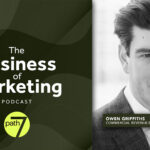By David Courtier-Dutton, CEO, SoundOut
“I want AI to do my dishes and laundry so I can do art and writing, not for AI to do art and writing so I can do my dishes and laundry” – Joanna Maciejewska, author
Since the dawn of time human creativity has been sacrosanct. New tools have automated farming, production, distribution – just about everything. But creativity has always been regarded as a mystical ability bestowed on humans alone, giving them an impervious monopoly.
Few careers are more vocation-driven than creativity – whether that is music, art or the movies. It often transcends material considerations and bestows on many creators a spiritual feeling of entitlement and self-fulfilment.
So, what impact will AI have on music, marketing and creativity in general?
Artists and AI
Last week SoundOut tested an AI track (created by me on Suno) [link?] with hundreds of US consumers – it ranked in the top quartile of all label released tracks in the last year – and I don’t have a musical bone in my body. This is hardly surprising as, having tested over 300,000 songs with consumers over the past 10 years, it is abundantly clear to me that the creative abilities of the vast majority of humans is actually not that impressive.
For all music artists, the path to greatness always starts with great music. Over time the truly talented build a brand that, if strong enough, can survive the odd bombing single or album and ultimately sustain a ‘career’ the success of which is typically measured in $s. AI will not destroy the current careers of all creators, but it seems inevitable that it will destroy the opportunity for majority. If AI starts persistently creating ‘great’ music the critical first rung of the ladder to ‘greatness’ may be removed.
To understand the impact we should not look at the first generation of AI gen platforms, much like the first iPhone, they are revolutionary, but it was the iPhone 4 that truly changed the game and led directly to accelerating the ultimate demise of Blackberry and Nokia. It is what is coming, not what is here now, that artists should fear.
Depressingly, you can also be certain that, like streaming revenues, the labels will point to artists contracts to explain that the majority of (potentially all) AI revenues should not be shared with the artists as there is no clause that covers this.
I know this all sounds pretty bleak, but to argue that AI is not creative because it’s not human is entirely missing the point. Being creative is undoubtedly reaffirming and fulfilling for the artist but beauty is always in the eye of the beholder (consumers). If consumers ultimately decide that the product is more important than the source, then AI music will triumph. We can argue all day about what consumers will decide but if the fashion industry is anything to learn from, the product wins every time.
Composers and budding recording artists want to know what the future will bring. I believe the answer lies somewhere between disruption and irrelevance. Vested interests who still believe in the human creative monopoly will disagree. Time will tell.
Consumers
As the recent Eras tour has underlined, the power of brand in live music is immutable. The heady blend of familiar music, celebrity, shared experience and performance is not yet under threat.
But the majority of consumers are fickle. Approximately 70-80% of consumers are casual listeners. They don’t go to live concerts, and while they listen to radio and streaming services, they are not music ‘fans’. To them the identity of the artist behind the music is rarely of interest. Simply put they listen to music they like and are ambivalent about the source. In the above mentioned AI music test we collected around 10,000 words of verbatim reviews from which it was clear that AI music can indeed stir emotions and trigger the emotional dopamine response consumers seek from music:
“This song has a hauntingly beautiful melody that tugs at the heartstrings. The melancholic lyrics and soulful vocals convey a sense of longing and heartache, evoking a deep emotional response from the listener.”
“Today I heard an angel sing… the overall theme is sad but you can still feel the emotions she portrays.”
“Each note stands with emotion, evoking memories that feel both personal and emotional. The overall art in the song is remarkable, blending instruments in a way that creates a rich environment, conveying deep feeling and emotions for all listeners.”
“Each note you sing feels intentional and filled with emotion, creating a powerful connection with the audience.”
Will the revelation that a song is AI generated dampen our emotional response or will consumers simply ‘get over it’ and place quality/appeal above creative source? At this point everyone is entitled to an opinion but reality will bite soon enough and if quality triumphs then all the raging of artists will change nothing.
Brands
Brands are slowly waking up to the wonderful economics of AI music. Music that perfectly resonates with the story arc of commercials, customisable genres, vocals and lyrics, no need for rights clearance, almost zero cost.
But at the same time they are acutely conscious of the swirling unknowns – the legality of the training data used in the models, the $150,000 penalty for each infringement, the risk of damaging their brand by being called out for disenfranchising artists or being regarded as unauthentic. Brands thrive on authenticity and by building genuine emotional relationships with consumers – could AI content weaken that bond?
But money talks, over time effectiveness will out. If AI generated content is shown to increase bottom line financial effectiveness (even marginally) brands will embrace gen AI. Initially as an ideation tool or co-pilot but soon as a replacement. Its already happening for soundtracks to social media content and, if effective, it will inevitably percolate up to higher budget media.
The speed at which this will happen will be tempered by a powerful storm anchor in the form of creative agencies, populated almost entirely with creatives, many of whom subscribe to the view that creativity is uniquely human. They will cling to the belief that AI is just a handy co-pilot – right up to the moment that AI plunges a career ending dagger into their back.
Conclusion
We face a future where many of those things that define us as humans are likely to be appropriated or replaced by AI – including creativity, work, and even relationships.
The impact on humanity will be fundamental. Humanity is set to experience a truly grief stricken decade. Many are currently in the ‘denial’ stage; we have anger, bargaining, depression and acceptance still to come.
Have a great weekend.






